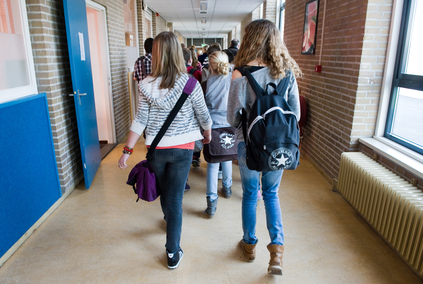Literacy among Dutch teenagers in steep decline, study finds

Literacy among Dutch teenagers has plummeted in the last four years and performances in maths and science have also declined, according to a comparative study of 81 countries.
One-third of 15-year-olds were scored at level 1 on a scale running up to 6, meaning they were at risk of leaving school without the reading and writing skills needed to function in society.
Of the 14 EU nations that took part in the Programme for International Student Assessment, only Greece performed worse than the Netherlands in 2022.
Until 2015 the Netherlands score was above the average for the 14 EU countries and the 81 nations in the OECD (Organisation for Economic Co-Operation and Development) that took part in the study. But in the last two editions, in 2018 and 2022, they have fallen behind.
Dutch schoolchildren are still ahead of the majority of their peers in maths, with a relatively high number achieving an “excellent” rating, but scores in all three groups declined.
More boys than girls excelled in maths, with girls more likely to experience anxiety around the subject, but girls were better on average at reading.
Performances in science were also in general decline, with the Netherlands no longer ahead of the EU average and only marginally above the OECD average score. One in four Dutch teenagers had insufficient literacy in maths and science.
“Educational crisis”
Caretaker education minister Mariëlle Paul said she was concerned by the findings. “We can and must do much better,” she said. “These are the very skills that are essential for people to be able to take part in society.”
The global pandemic was partly blamed for the weaker performances of secondary schoolchildren since 2018, but the decline in the Netherlands predates that, having started in 2015.
Three in 10 of the teenagers surveyed said they experienced loneliness when schools closed during lockdown, with girls and children at the lowest vocational level, vmbo, most likely to feel isolated.
Theo Witte, chair of the educational RED team, a group of independent experts that publishes advice for the government, said he was “dreadfully shocked” by the results.
“We have a deep crisis in education,” he said. “But if you examine the political parties’ manifestos, not one of the major parties has a comprehensive plan to stop the decline in the quality of our education.
“They have all kinds of vague ideas and ideals, the majority of which are unfeasible because of the teacher shortage.”
Thank you for donating to DutchNews.nl.
We could not provide the Dutch News service, and keep it free of charge, without the generous support of our readers. Your donations allow us to report on issues you tell us matter, and provide you with a summary of the most important Dutch news each day.
Make a donation